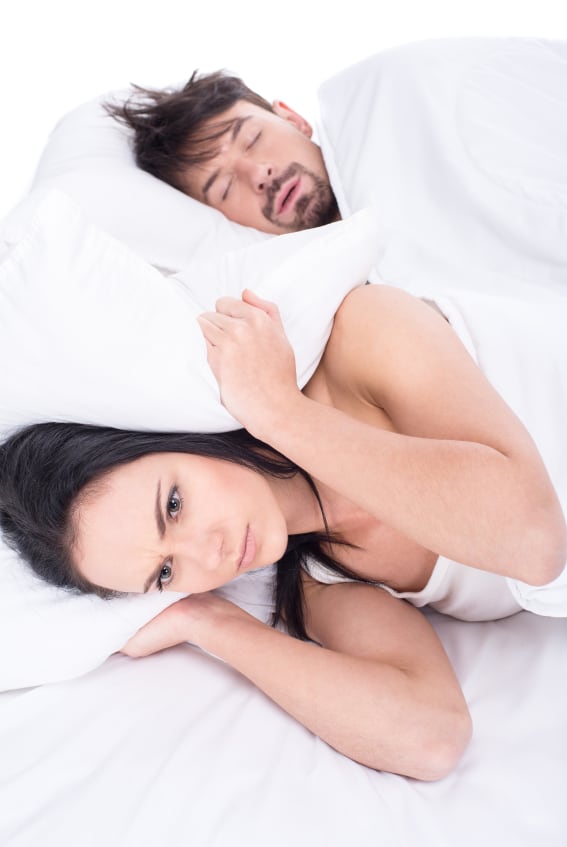How Effective is a Mouthguard for Snoring and Sleep Apnea?

Many patients come to eos dental sleep frustrated with their CPAP mask, unable to tolerate it and unwilling to wear it on a nightly basis. Fortunately, our dental sleep specialist offers another treatment option called oral appliance therapy, also referred to as a mouthguard for snoring and sleep apnea, which has numerous advantages over CPAP. In this blog, we’ll explain how a mouthguard for snoring works and the measures of its effectiveness as a treatment option.
How does a mouthguard for snoring and sleep apnea work?
A mouthguard for snoring is similar in appearance to a mouthguard worn for sports, except that it does far more than protect your teeth from injury. When inserted, the device works by repositioning the jaw and/or tongue to enlarge the airway and prevent obstructions from occurring during sleep. It essentially acts as a brace – it keeps the tissues and jaw in a designated and stable position so that they don’t interfere with the process of air entering and exiting.
Some advantages of this treatment option include:
- It’s custom made to fit your mouth comfortably
- Most patients only take a night or two to get used to it
- It’s small and convenient to travel with
- The fit is adjustable
- It’s easy to clean and care for
Is a mouthguard for snoring an effective treatment option?
There have been numerous studies conducted to assess the effectiveness of oral appliance therapy. One such study from 2013, "Health Outcomes of Continuous Positive Airway Pressure versus Oral Appliance Treatment for Obstructive Sleep Apnea" had several important findings about the effectiveness of a mouthguard for snoring.
Study findings included:
- Sleepiness, driving simulator performance, and disease-specific quality of life improved by similar amounts for both treatments after comparing study participant results from 1-month use of CPAP and 1-month use of oral appliance therapy
- Oral appliance therapy was superior to CPAP for improving most aspects related to quality of life
- Reported compliance was higher with oral appliance therapy than with CPAP
Another study, "Effect of Oral Appliance Therapy on Upper Airway Collapsibility in Obstructive Sleep Apnea" found that oral appliance therapy is associated with significantly improved upper airway collapsibility during sleep. In other words, the device is effective at preventing structures in the airway from collapsing and obstructing breathing.
Aside from the effectiveness in improving symptoms of snoring and sleep apnea, some might argue that oral appliance therapy is even more effective than CPAP because compliance rates among its users are simply higher – just consider the less than 50% compliance among CPAP users compared to the 80%+ compliance of oral appliance therapy users. In fact, 91% of sleep apnea patients treated with an oral appliance were still using their appliances comfortably at the end of one year.
All in all, for chronic snorers or sleep apnics who are unable to use their prescribed CPAP mask as directed, this means that a mouthguard for snoring may be a great option for you. Perhaps most importantly, it may be a treatment option that you actually want to use on a nightly basis.
Where can I get a mouthguard for snoring in Philadelphia?
If you’re ready to get started with a snoring and sleep apnea treatment that is both effective and comfortable, eos dental sleep is ready to help. Our practice offers a convenient location in Center City, Philadelphia. You can get started by filling out the schedule appointment form right on this page or by contacting us directly. We look forward to helping you sleep soundly without all the sound!
